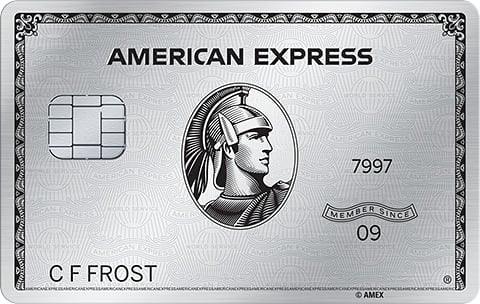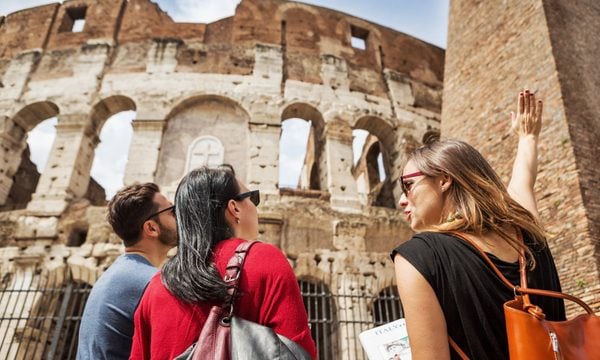How to Book a Flight That (Likely) Won’t Get Canceled
Airline cancellations can’t be avoided entirely, but there are smart steps you can take to prepare just in case.

Many or all of the products on this page are from partners who compensate us when you click to or take an action on their website, but this does not influence our evaluations or ratings. Our opinions are our own.
A canceled flight can easily ruin your trip. Airlines in the U.S. are obligated to refund you if they cancel your flight and you don't accept their offer to rebook you on a future flight, but that's only for airfare. Airlines are not legally required to refund any prepaid hotel reservations, cruises or tours you might have missed because your flight was canceled.
Given that, it can be good practice to simply book flights less likely to get canceled. After all, air travel chaos like the massive Southwest Holiday Meltdown during the week following Christmas 2022, or the Federal Aviation Administration’s temporary shutdown a few weeks later, is not uncommon.
🤓 Nerdy Tip
If the airline cancels or makes major changes to your flight, for any reason, you are eligible for a full refund under Department of Transportation regulations. The definition of "major changes" isn't totally clear, but in general, any schedule change of more than 24 hours should be eligible for a full refund. 
By signing up, you will receive newsletters and promotional content and agree to our Terms of Use and acknowledge the data practices in our Privacy Policy. You may unsubscribe at any time.
So how do you improve your odds of traveling on a flight that arrives in good time? And how have flight delays and cancelations become so prevalent?
How to improve your chances of avoiding airline cancellations
Know which airlines actually arrive on schedule
While past performance doesn’t guarantee future performance, it’s at least a good indicator. NerdWallet analyzed BTS arrival data in 2023 for the 10 largest U.S. airlines by passenger miles to determine each airline’s on-time arrivals rate.
| Percent of on-time flights | Percent of delayed flights | Percent of canceled flights | |
|---|---|---|---|
| Alaska Airlines | 79.48%. | 19.42%. | 0.81%. |
| American Airlines | 75.94%. | 22.74%. | 1.06%. |
| Delta Air Lines | 82.61%. | 16.17%. | 1.02%. |
| Hawaiian Airlines | 75.20%. | 23.41%. | 1.30%. |
| Frontier Airlines | 66.99%. | 30.71%. | 2.13%. |
| JetBlue Airways | 67.08%. | 30.40%. | 2.10%. |
| SkyWest Airlines (Delta regional airline) | 82.46%. | 16.01%. | 1.22%. |
| Southwest Airlines | 77.25%. | 21.55%. | 1.00%. |
| Spirit Airlines | 69.51%. | 28.59%. | 1.70%. |
| United Air Lines | 78.07%. | 20.27%. | 1.40%. |
If timeliness is a priority, consider booking Delta or its regional counterpart, SkyWest Airlines. Both arrived on time 83% of the time. Skip JetBlue or Frontier, both of which only landed on schedule about 67% of the time.
Air carrier problems — meaning the issue was due to circumstances within the airline's control, such as maintenance, cleaning, baggage loading or fueling delays — were the second most common cause of late arrivals in 2023, accounting for nearly 7% of delays.
Book the earliest flight in the day
So what was the most common cause of delays? The aircraft arrived late from its previous destination. In fact, that's the reason behind 7% of all delays in 2023.
It’s not uncommon for the aircraft flying an evening flight to have already made a couple of trips earlier in the day. If one of the earlier flights was delayed, there’d likely be a snowball effect.
For example, the aircraft’s first flight of the day may have been fine, but if the second flight had maintenance problems and arrived late, then the third flight would probably run behind schedule, which could in turn affect any subsequent flights. You can try to avoid the snowball effect by booking the day’s first flight.
Avoid layovers
Sadly, it doesn’t do you much good for the first leg of your flight to arrive on schedule if the second leg is delayed. Who wants to sit twiddling their thumbs in a layover city or airport?
It’s potentially even worse if the second leg of your journey departs on time, but you miss it because your incoming flight was delayed.
Mitigate this risk by booking nonstop flights. Even if the airfare is more expensive, it could be worth it to avoid the headache of missing a connecting flight.
If a layover is unavoidable, it’s almost always better to book the entire journey with the same airline on a single itinerary, as opposed to booking with separate airlines for each leg of the trip. That way, if your first flight ends up being delayed, the airline may work with you to adjust your connecting flight, provided that the delay was its fault. If you book the two legs of your trip on different airlines, you likely won’t get that kind of consideration.
» Learn more: What are layover, stopover and open jaw flights?
Choose an airline with multiple flights per day
If your flight is canceled, most airlines will rebook you on their next flight with available space for no additional charge, according to the U.S. Department of Transportation. If your airline runs multiple flights on the same route per day, you may only have to wait a few hours. Sure, having to take a later flight would be annoying, but it likely wouldn't ruin your trip.
As an example, let's say you’re flying from Los Angeles to Las Vegas, a route that United usually flies four times per day. But you choose to take JetBlue, which typically only flies that route two times per day. If your ticket is for the single afternoon flight — and it then gets canceled — there’s a good chance you won’t be able to get to Vegas that day, period.
And no, you likely won't be able to persuade JetBlue to pay for one of United's remaining flights, as there are no federal regulations requiring airlines to put you on another airline's flight or reimburse you for another airline’s tickets.

What to do after booking
Even if you follow our advice to decrease the chances of your flight getting canceled (say, by booking the first, nonstop flight of the day on Delta — one of the most on-time airlines), you could still hit a patch of bad luck. These next steps might save you some headaches:
Check your flight status
To stay informed, opt-in to receiving flight status updates by email, text or push notification, a feature of some airline apps. Or, simply plug your flight number into a search engine to get real-time flight data.
If your flight is canceled, you might decide you’re better off staying put and booking a new flight from home rather than scrambling to do so at the airport. If your flight is delayed, you might simply head to the airport at a more leisurely pace. Just be sure to keep an eye on the flight status, because a flight marked delayed can sometimes revert back to being on time.
Don’t pack a checked bag (but do pack your patience)
If your initial flight gets canceled and you have to book a different airline’s last-minute flight, it might be difficult to retrieve a suitcase that’s still in the first airline’s hands. Traveling with a carry-on lets you move more nimbly between flights.
There is one thing you can pack that won’t take up any luggage space: patience. The gate agent likely isn’t responsible for the delay, so be kind — and they might be more likely to help book you on another flight.
Additionally, consider joining an airport lounge membership program like Priority Pass. (Membership is sometimes free with certain credit cards.) Lounge amenities — which sometimes include luxuries like nap suites, Peloton bikes, showers and buffets — can usually make it easier to stomach a long delay.
Understand your rights
If your flight is delayed or canceled, know what compensation you’re entitled to (as airlines sometimes compensate you for delays or cancelations, but not always). Sadly, it’s not much when it comes to delays; there are no federal laws requiring airlines to provide passengers with compensation for delayed flights.
Some airlines offer vouchers, such as meal vouchers or hotel vouchers to stranded passengers, but that's uncommon among budget airlines. Airlines are not required to reimburse you for non-air expenses, such as a prepaid hotel room or a missed cruise departure.
For canceled flights where you opt not to be rebooked on another flight, you are entitled to a refund of the airfare, even if you bought nonrefundable tickets.
Have a backup plan
Given that airlines aren’t legally required to do much to help you, understand how to help yourself. If your flight already has been canceled at the last minute, follow these steps.
For everyone else, you can plan in advance for a potential flight cancellation:
- Map out nearby airports or alternative transportation: For example, if your in-state flight from Burbank to Oakland, California, gets canceled, you might be able to hail a cab to the airport in Los Angeles or Long Beach and catch a different flight. Look beyond airports too; you might give up on flying completely and hop on a train up north.
- Book refundable travel: You may be able to book a refundable ticket if you're willing to pay extra. Otherwise, as long as you book a non-basic economy fare, you'll probably at least get a voucher to use on the airline toward another flight if you decide to change or cancel the flight due to itinerary changes.
- Consider trip insurance: Travel insurance might help you get money back if a trip is canceled or delayed. It might also fund expenses incurred by delays, like an extra hotel room night. This can be helpful, say, if a hurricane prevents you from flying home from your Caribbean vacation, forcing you to book an additional night at your resort. Read the fine print, as many policies exclude delays caused by the airline.
Consider booking flights with a card that includes travel insurance
Some credit cards offer complimentary travel insurance benefits. Booking your flight using such a card can ensure that you'll be covered in case of cancellation or delay.
Cards with travel insurance benefits
Annual fee
- $95
- $795
- $895
- $95
Travel protections (not a comprehensive list)
• Trip delay: Up to $500 per ticket for delays more than 12 hours.
• Trip cancellation: Up to $10,000 per person and $20,000 per trip. Maximum benefit of $40,000 per 12-month period.
• Trip interruption: Up to $10,000 per person and $20,000 per trip. Maximum benefit of $40,000 per 12-month period.
• Baggage delay: Up to $100 per day for five days.
• Lost luggage: Up to $3,000 per passenger.
• Travel accident: Up to $500,000.
• Rental car insurance: Up to $75,000.
• Trip delay: Up to $500 per ticket for delays more than 6 hours.
• Trip cancellation: Up to $10,000 per person and $20,000 per trip. Maximum benefit of $40,000 per 12-month period.
• Trip interruption: Up to $10,000 per person and $20,000 per trip. Maximum benefit of $40,000 per 12-month period.
• Baggage delay: Up to $100 per day for five days.
• Lost luggage: Up to $3,000 per passenger.
• Travel accident: Up to $1 million.
• Rental car insurance: Up to the actual cash value of the car.
• Trip delay: Up to $500 per trip for delays more than 6 hours.
• Trip cancellation: Up to $10,000 per trip. Maximum benefit of $20,000 per 12-month period.
• Trip interruption: Up to $10,000 per trip. Maximum benefit of $20,000 per 12-month period.
• Lost luggage: Up to $3,000 per passenger.
• Travel accident: Up to $500,000.
• Rental car insurance: Up to $75,000.
Terms apply.
• Trip delay: Up to $500 per ticket for delays more than 12 hours.
• Trip cancellation: Up to $10,000 per trip. Maximum benefit of $20,000 per 12-month period.
• Trip interruption: Up to $10,000 per trip. Maximum benefit of $20,000 per 12-month period.
• Baggage delay: Up to $100 per day for five days.
• Lost luggage: Up to $3,000 per passenger.
• Travel accident: Up to $500,000.
• Rental car insurance: Up to the actual cash value of the car.
Learn more
Why are so many flights being canceled?
There are several reasons why there's been an uptick in flights being canceled, and there’s currently a lot of finger-pointing, too.
Contributing factors include:
- Airline issues, like not having enough staff. Mechanical issues and delays may be compounded by staffing shortages.
- The Federal Aviation Administration is also experiencing staffing issues. While a shortage isn’t to blame, the agency is still managing backups in training new air traffic controllers quickly enough. National Aviation System delays, such as heavy traffic volume or air traffic control challenges, account for about 5% of delays.
- Weather. This issue is minor; weather delays have accounted for less than 1% of late arrivals so far this year.
- Increased travel demand. If one aircraft previously flew two flights a day with a six-hour buffer between flights, the second flight wouldn’t be impacted, even if the first flight was delayed three hours. Now, if that same aircraft has increased its flight numbers to three a day with less downtime, even a short delay can severely impact future flights.
How to book better flights
On-time arrival rates haven’t been this bad since 2014. Unless you’ve got a crystal ball, there’s no way to guarantee you won’t book a flight that gets delayed. But even without one, a thoughtful booking strategy can better ensure you get to your destination on schedule.
In general, avoid layovers. Book the earliest flight in the day. And of course, book the airlines that have the best track record of on-time performance (or otherwise book with larger airlines that run multiple flights per day).
To view rates and fees of the American Express Platinum Card®, see this page.
American Express travel insurance disclosures
Insurance Benefit: Trip Cancellation and Interruption Insurance
- The maximum benefit amount for Trip Cancellation and Interruption Insurance is $10,000 per Covered Trip and $20,000 per Eligible Card per 12 consecutive month period.
- Eligibility and Benefit level varies by Card. Terms, Conditions and Limitations Apply.
- Please visit americanexpress.com/benefitsguide for more details.
- Underwritten by New Hampshire Insurance Company, an AIG Company.
Insurance Benefit: Trip Delay Insurance
- Up to $500 per Covered Trip that is delayed for more than 6 hours; and 2 claims per Eligible Card per 12 consecutive month period.
- Eligibility and Benefit level varies by Card. Terms, Conditions and Limitations Apply.
- Please visit americanexpress.com/benefitsguide for more details.
- Underwritten by New Hampshire Insurance Company, an AIG Company.
Insurance Benefit: Car Rental Loss & Damage Insurance
- Car Rental Loss and Damage Insurance can provide coverage up to $75,000 for theft of or damage to most rental vehicles when you use your eligible Card to reserve and pay for the entire eligible vehicle rental and decline the collision damage waiver or similar option offered by the Commercial Car Rental Company. This product provides secondary coverage and does not include liability coverage. Not all vehicle types or rentals are covered. Geographic restrictions apply.
- Eligibility and Benefit level varies by Card. Terms, Conditions and Limitations Apply.
- Please visit americanexpress.com/benefitsguide for more details.
- Underwritten by AMEX Assurance Company. Car Rental Loss or Damage Coverage is offered through American Express Travel Related Services Company, Inc.
Article sources
NerdWallet writers are subject matter authorities who use primary,
trustworthy sources to inform their work, including peer-reviewed
studies, government websites, academic research and interviews with
industry experts. All content is fact-checked for accuracy, timeliness
and relevance. You can learn more about NerdWallet's high
standards for journalism by reading our
editorial guidelines.
Limited Time Only: Earn $1,000 Toward Travel!
Capital One Venture Rewards Credit Card 
Travel

For a limited time, the
Capital One Venture Rewards Credit Card is offering new cardholders an especially rich bonus: Enjoy $250 to use on Capital One Travel in your first cardholder year, plus earn 75,000 bonus miles once you spend $4,000 on purchases within the first 3 months from account opening - that’s equal to $1,000 in travel!
More like this
Related articles












